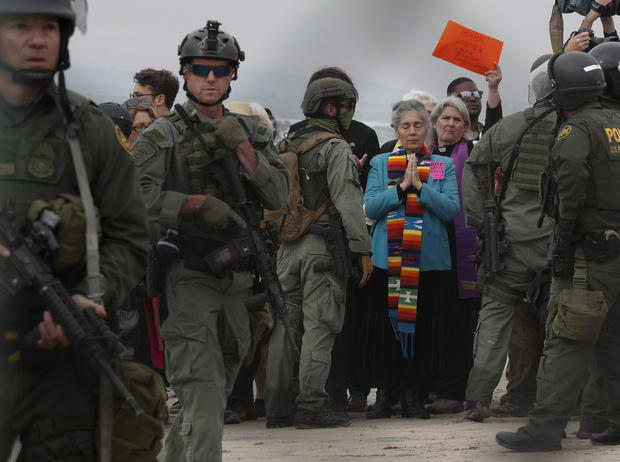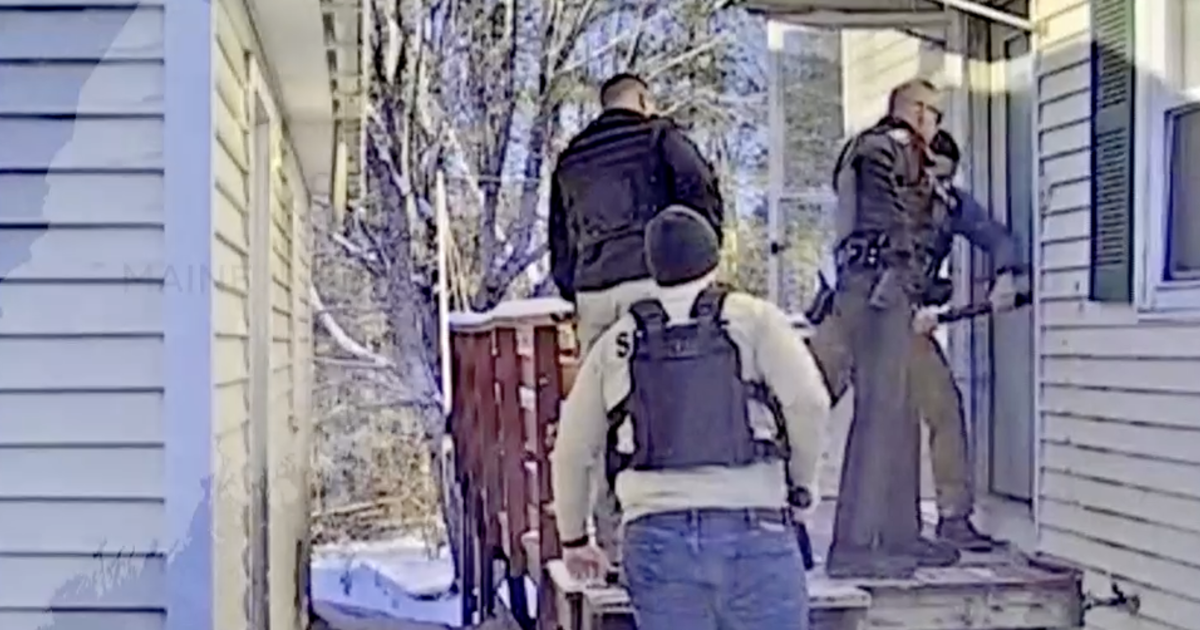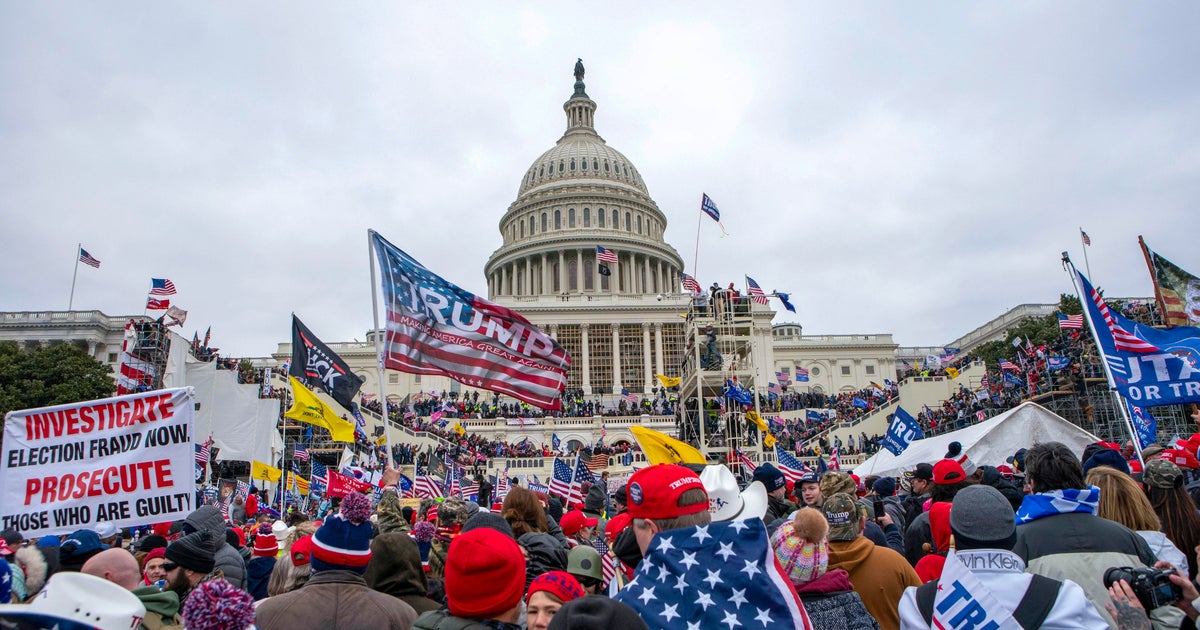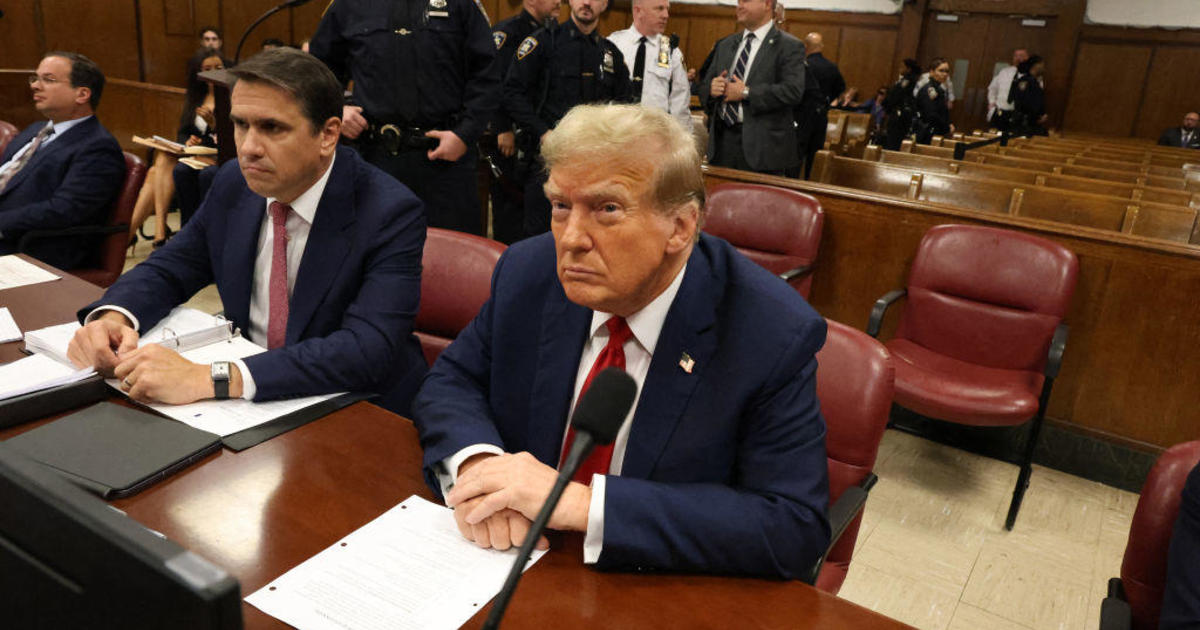Trump to dispatch border agents to "sanctuary" cities to aid in ICE operations
Washington — Escalating its feud with so-called "sanctuary" cities, the Trump administration plans to dispatch dozens of border agents across the interior of the country to participate in immigration enforcement operations in major urban centers that limit cooperation with federal immigration agencies.
Customs and Border Protection (CBP), the nation's largest law enforcement agency, is deploying 100 of its agents to cities with large immigrant communities like Los Angeles, San Francisco, Houston and Newark to assist Immigration and Customs and Enforcement (ICE), which is in charge of deporting undocumented immigrants.
According to a CBP official, the outfit being dispatched includes 50 officers in the Office of Field Operations, which oversees the nation's ports of entry, and 50 Border Patrol agents, including members of an elite, highly-trained unit known as BORTAC. The special outfit has been described as a SWAT-level team.
In a statement, acting ICE director Matthew Albence said help from CBP, another agency within the Department of Homeland Security, is necessary because of the "significant amount of additional time and resources" involved in enforcement operations within communities that refuse to hold undocumented immigrants in jails until his agents can apprehend them.
Albence said that ICE would be using CBP to help with "enforcement activity in response to the resource challenges stemming from sanctuary city policies."
Homeland Security officials said that the 5,300 deportation officers ICE has at its disposal lack "sufficient resources" to apprehend and detain unauthorized immigrants who have been prioritized for deportation.
But it's not clear which interior enforcement operations CBP officers will take part in. ICE said it does not reveal details about planned operations because of "law enforcement sensitivities" and the need to protect its officers.
The assignment, first reported by The New York Times, represents the latest move by the Trump administration to ramp up pressure on "sanctuary" cities — a frequent target of President Trump's ire.
After the president, in his State of the Union address, accused Democratic-controlled states and cities of harboring undocumented immigrants who commit serious crimes, the top official at DHS, Chad Wolf, announced that New Yorkers would no longer be eligible to enroll or renew memberships in programs designed to expedite the vetting of travelers at airports and border checkpoints. The department said the move was warranted because state law in New York prevents its officials from accessing certain data from the state's motor vehicle department.
The Justice Department recently mounted legal challenges against immigration policies in Washington, California and New Jersey. The administration has also tried to withhold federal funds from "sanctuary" jurisdictions, but its efforts are still being adjudicated by the courts.
Jurisdictions that adopt so-called "sanctuary" policies see them as necessary to safeguard public safety and to maintain a good relationship between local law enforcement and immigrant communities. Helping the federal government apprehend and detain unauthorized residents, the cities argue, will deter immigrants from helping local authorities fight crime and participating in other community initiatives.
Friday's announcement drew a sharp rebuke from immigrant advocates, who believe Mr. Trump may be emboldened to ramp up in his crackdown on undocumented immigrants after the Republican-led Senate acquitted him of the articles of impeachment the House leveled against him.
"I think not only is this a sign of things to come in an election year, I think if Trump, God forbids, gets reelected, we will see the acceleration and expansion of this kind of heavy-handed police state tactics," said Frank Sharry, the executive director of America's Voice, a group that supports liberal immigration policies.
The American Civil Liberties Union (ACLU), one of the administration's top foes in court, said any potential litigation depends on the legal authorities DHS will cite for the new assignment. Naureen Shah, a top lawyer at the ACLU, said there may be concerns surrounding the legal limits CBP officers have outside the 100-mile border zone, in which they have broad authority to search and seize.
"They certainly do have that authority within the 100-mile zone and so whether or not there are legal issues with their conduct is actually turn on what exactly that conduct is and if it is going far beyond just kind of standing side while ICE conducts an arrest," Shah said.





